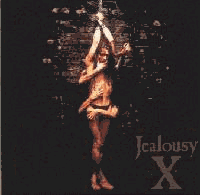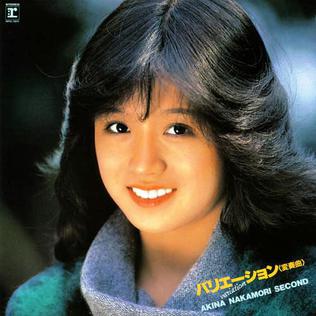Mr. Children, commonly referred to by their contracted nickname "Misu-Chiru" (ミスチル), are a Japanese pop rock band formed in 1989. Consisting of Kazutoshi Sakurai, Kenichi Tahara, Keisuke Nakagawa, and Hideya Suzuki, they made their major label debut in 1992. They are one of the best selling artists in Japan and one of the most successful Japanese rock artists, having sold over 75 million records and creating the "Mis-chil Phenomenon" (ミスチル現象) in the mid-1990s in Japan. They held the record for the highest first week sales of a single in Japan for 15 years, with 1.2 million copies of their 10th single "Namonaki Uta" (名もなき詩), have 30 consecutive number 1 singles, replaced Glay as the all-male band to have the most number 1 albums on the Oricon charts, and won the Japan Record Award in 1994 for "Innocent World" and in 2004 for "Sign". As of 2012, Mr. Children has published fifteen original studio albums and 34 physical singles, along with five compilations, a live album, and fifteen home video releases.
Tsuyoshi Domoto is a Japanese idol, singer, songwriter, actor, and television personality. Along with Koichi Domoto, he is a member of KinKi Kids, which is a Japanese duo under the management of Johnny & Associates and the record holder of Guinness World Records for having the record of the most consecutive number-one singles since their debut single.
J-pop, natively also known simply as pops, is the name for a form of popular music that entered the musical mainstream of Japan in the 1990s. Modern J-pop has its roots in traditional music of Japan, and significantly in 1960s pop and rock music. J-pop replaced kayōkyoku in the Japanese music scene.
Southern All Stars, also known by the abbreviations Sazan (サザン) and SAS, are a Japanese rock band that first formed in 1974.

Yumi Matsutoya, nicknamed Yuming, is a Japanese singer, composer, lyricist and pianist. Generally the writer of both the lyrics and the music in her songs, she is renowned for her idiosyncratic voice and live performances, and is one of the most prominent figures in the history of Japanese popular music.
Keisuke Kuwata is a Japanese multi-instrumentalist, singer-songwriter, and frontman for the Southern All Stars, as well of his own solo band, the Kuwata band. He has also done a significant amount of scoring music for films. He went to Aoyama Gakuin University.

Crystal Kay Williams is a Japanese-American singer, songwriter, actress and radio host.
KAT-TUN is a Japanese boy band formed under Johnny & Associates (Johnny's) in 2001. The group's name was originally an acronym based on the first letter of each member's family name: Kazuya Kamenashi, Jin Akanishi, Junnosuke Taguchi, Koki Tanaka, Tatsuya Ueda, and Yuichi Nakamaru. Their debut on March 22, 2006, was marked by a tripartite release of a CD single, album and music DVD on their exclusive record label J-One Records. Since then, all of their single, album and music DVD releases have debuted at number one on the Oricon music and DVD charts.

Blue Blood is the second studio album by Japanese rock band X Japan, then known as simply X. It was released on April 21, 1989, by CBS/Sony as the band's major label debut. Blue Blood sold more than 700,000 copies, reached number 6 on the Oricon chart and stayed on the chart for more than 100 weeks. The album's singles would also reach the top five on the chart. In 2007, Rolling Stone Japan ranked Blue Blood number 15 on their list of the "100 Greatest Japanese Rock Albums of All Time".

Dahlia is the fifth studio album by Japanese rock band X Japan, released on November 4, 1996, by Atlantic Records. It is the band's last album before breaking up the following year, and the last to feature new work by guitarist hide, due to his death two years later. The album is composed largely of ballads, with only a few tracks retaining the band's heavier musical traits seen on previous releases. It topped the Oricon chart and stayed on the chart for only 15 weeks, but managed to sell over half a million copies. Seven, nearly all, of the album's songs were released as singles, most of which also topped the singles chart and sold well.

Jealousy is the third studio album by Japanese heavy metal band X Japan, then known as simply X. The album was released on July 1, 1991, by Sony, as the band's second major label release. Jealousy is the band's best-selling album, having sold more than one million copies, it topped the Oricon chart and stayed on the chart for 50 weeks. The album's singles would also reach the top three on the chart. It is their last album under the name "X", before changing to "X Japan", and the last to feature Taiji on bass, who would be replaced by Heath.
KinKi Kids is a Japanese duo consisting of Koichi Domoto and Tsuyoshi Domoto under the talent agency Johnny & Associates. KinKi Kids was formed in 1993 and officially debuted on July 21, 1997. With more than 30 million physical copies sold, they are one of the best selling boy groups in Asian history and top 20 best-selling artists of all time in Japan. Although the members share the same surname, the only relation they have to each other is that they both hail from the Kinki region, hence the duo's name.

Masahiko Kondō or Matchy is a Japanese singer, lyricist, actor, racing car manager and former semi-professional racing driver. He was a member of the Tanokin Trio.

"Keep the faith" is the fifth overall single by the Japanese boy band, KAT-TUN, and the second from their third studio album, KAT-TUN III: Queen of Pirates. It was released in three editions with three different covers; the regular edition contains all the songs and its instrumental versions, the first press edition came with a bonus track entitled "Lovin'U" and its instrumental track and the second limited edition was packaged with a DVD with the single's music video and a short film about the making of the music video.
Hideaki Tokunaga is a Japanese pop singer-songwriter and actor.

TOK10 is a cover album by Japanese band Tokio, released on September 1, 2004. It was released to commemorate the tenth anniversary of the band's debut. The album peaked at first place on the Oricon weekly chart and charted for twelve weeks. Thus far, it is their only album to top the Oricon charts.
"Love Story wa Totsuzen ni' is a song by Japanese singer Kazumasa Oda. The song, his best-known work, is featured as the B-side on the single "Oh! Yeah! / Love Story wa Totsuzen ni", the ninth-best-selling Japanese single since 1968, selling approximately 2.7 million copies to date.

Over the Rainbow is the tenth studio album by Japanese singer and songwriter Mai Kuraki. It was released on January 11, 2012, by Northern Music. Some of the songs on Over the Rainbow are themed about the 2011 Tōhoku earthquake and tsunami, from which Kuraki has continuously contributed to the reconstruction in several ways.

Keisuke Kuwata is the studio album recorded by Keisuke Kuwata, the frontman of the Japanese rock band Southern All Stars. It was released by Taishita label under the Victor Entertainment in July 1988, shortly after the 10th anniversary of the band. Aside from the 1982 live recording album Kamon Yuzo and Victor Wheels Live released under the pseudonym Yūzō Kamon, it was first Kuwata's solo effort.

Variation (Hensoukyoku) (Japanese: バリエーション〈変奏曲〉, Hepburn: Bariēshon (hensōkyoku)) is the second studio album by Japanese entertainer Akina Nakamori. It was released on October 27, 1982 by Warner Pioneer under the Reprise Records label. The album includes the controversial single hit "Shōjo A". It became Nakamori's first number-one on the Oricon Weekly Albums Chart and her best sold album.











